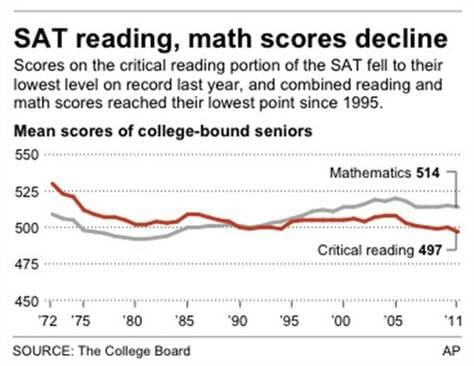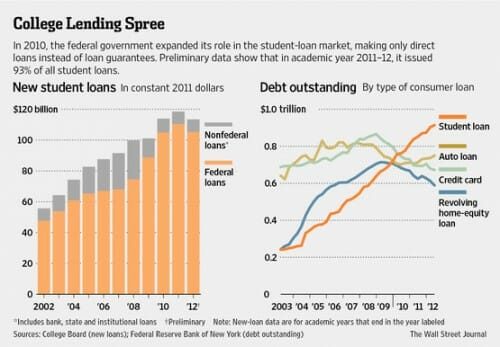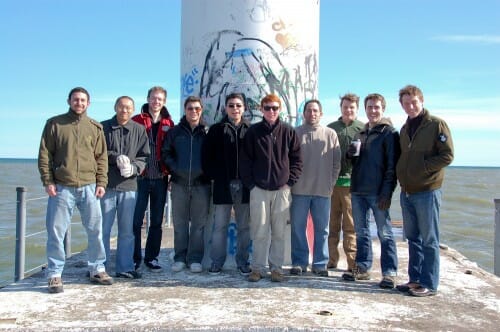Back in August, when I wrote the first section of this guide, I was sitting in Long Island at a baseball recruiting camp. Now that my son has completed the process, I want to share the rest of our experience for others who, like myself, have an athletic kid but no idea how the college sports recruiting process works.
Some reminders. First, this is baseball-specific -- other sports work differently, I presume. Second, this is the experience of a kid with good baseball skills but not good enough to have been scouted by a Division I baseball power like Texas or Arizona State. Third, my son was not looking for scholarship money. He was looking to play baseball in college, and to parlay his baseball talent into admission in a top academic school. We were looking at division III (DIII from now on) schools like Williams, Amherst, Haverford, Pomona and a few DI Ivies. Finally, our experience is heavily colored by the fact that he plays for one of the smallest high schools in the state, so getting attention and recruiting advice was much harder than if he had played for a baseball powerhouse.
Here were some of the lessons from our first episode:
- The DIII baseball recruiting process does not really even begin until the summer between Junior and Senior year. My son landed a good spot without a single coach even knowing he existed as of June 1 before his Senior year of high school. As late as January of his senior year he was still getting emails from coaches asking him if he might be interested in their school.
- In baseball, coaches mostly ignore high school stats and records unless it is a school with which they are very familiar. They use their eyes to pick talent - ie from video or watching kids play at recruiting camps (more on the video and camps in our first episode)
- As we will see in a minute, only about three things my son did in recruiting really mattered -- see the first episode for more detail on what we did
- He proactively contacted coaches to tell them he was interested
- He sent coaches a 5-10 minute video of himself pitching and hitting. We made it from game film but I think most of the videos are just taken in a cage (you can see a bunch of these on YouTube, or email me and I will give you a link to ours)
- He went to several camps, which fell into two categories: School camps, at schools he was really interested in; and multi-school camps run by third parties. Of the latter, I am convinced the Headfirst Honor Roll camps are the best if you are interested in DIII or DI "smart schools" (e.g. Ivies, Duke, UVA, Stanford).
OK, so we left off with my son at a two-day baseball camp. My son sent out emails afterwards to the coaches that were at the camp and from schools in which he was interested. Basically he said "nice to have met you, still really interested in your school; now that you have seen me, I'd like to know what you think." He had a few good conversations with coaches at the camp, but after that we really did not hear much until after Labor Day. In retrospect, this delay is probably because the coaches have lots of camps and they want to synthesize their prospect list after all the camps before talking in earnest with players.
We really did not know what to expect. Would coaches call, and if they did, what were the next steps? It was only later that we learned what outcome we should be hoping to hear: Basically, each coach is given some spots by the admissions office (the average seems to be 5 for the baseball guys). If your kid can make that list, then two good things happen: a) it means the coach wants the kid on the team. And b) it generally means the kid will get a good shove to help him through the admissions process, not an inconsequential thing at a school like Princeton or Amherst.
Here is what happened next. This was just our experience, but since it was repeated at five or six schools, almost identically, its a good bet this is a fairly standard process at colleges with high admission requirements:
- The coach asks my son to send his transcript and SAT scores early to the Admissions office.
- The Admissions office vets these, and gives the coach a reading -- for us, that reading was generally "if you put this kid on your short list, coach, he very likely will get in."
- The coach then passed this message to my kid, saying there are no guarantees (etc. etc.) but all the kids with this same read from the admissions office who have been on his list have gotten in in the past.
BUT, there is a bit of a catch. The coach will say that he can only put my kid on his list if we will commit to applying early decision. Early decision (ED) means that one applies in November and hears in December (so well earlier than the April 1 regular admit date), but it is a binding commitment to attend if admitted. This means that one can only apply to one school early decision. Coaches aren't dumb. They can't afford to waste the few recruiting spots they have on kids who aren't going to come. So there is a quid pro quo - the coach will commit to the kid and help him through admissions, but the kid has to commit to the program.
But we only learned this later. When coaches started calling, we weren't sure what to expect. A couple called early to say that my son would not be on their list. I have to give kudos to Coach Bradley from Princeton -- he called and told my son he wouldn't make the list. It was not the news we wanted to hear, but he was up front and honest with us so we did not waste our time. He was also the one who really explained all the stuff I wrote above, so we were more knowledgeable when other coaches called.
Soon, however, we were getting floods of interested contacts. Many were from the coaches he had proactively contacted. Some were from schools we never had heard of, and some were from very good schools but in parts of the country that weren't in his college search area (e.g. Kenyon, Grinnell, Carlton in the midwest). Many of these coaches asked for him to come to campus (on our own dime, they were not paying) for a visit, including an overnight stay with someone on the team. Eventually my son scheduled visits at Wesleyan, Bowdoin, Vassar, and Haverford. He chose these in some cases for the school and in some cases because he really liked the coach. All four of these offered him a spot on the short list for admissions if he was willing to go ED.
It was at this point that we hit the highlight of the whole process. Like many parents, I just want to see my kid gain life skills. My son will never be a good sales person. He is really, really hesitant to cold call adults to ask them for something. This process was good for him in that sense, because he began to see the fruits of having proactively cold-called these coaches earlier in the process. But I still had to poke and prod him to do it.
However, with these other visits set up, my son was apparently thinking "these would all be good schools, but they are not in the top tier of my aspirations." He was thinking about skipping ED, and trusting his grades and resume to the regular admissions process so he could still take a shot at his top choices (places like Princeton and Stanford).
He decided that the ideal choice for him would be Amherst - he loved the school, it was top-notch academically, had a great baseball tradition and an engaging coach. That was the school he would be willing to go ED for. He had met the Amherst coach on a school visit and at camp and Coach Hamm had been very nice. But in the Fall,we had not heard anything from him. (I have to insert a story here -- way back in March my son was on the Amherst campus and dropped by without an appointment at Coach Hamm's office. At that point, Hamm did not know who my son was -- for all he knew he might have been the strikeout leader in T-ball. But he spent a whole hour with Nic showing him around the facility and later at practice.)
This is where the breakthrough came. Without my prodding or even involvement, my son contacted Coach Hamm one more time, to say he had not heard from Amherst but he was still really interested and he would be touring other nearby colleges in a week or so and would still love to meet with him.
We will never know exactly what happened. Perhaps the coach was late in kicking off his recruiting. Perhaps another kid on his list dropped out. Perhaps he just wanted to sit back and see which kids were the hungriest. Whatever the case, Coach Hamm wrote back immediately and said he would love to meet my son on campus (he actually changed around a trip to be there). The process described above played out (grades to the Admissions office, offer to be on the "list", ED application) and long story short, Nic will be at Amherst next year.
As I mentioned earlier, there was no money offered for baseball (nor could there be in leagues like the Ivies or the NESCAC which ban athletic scholarships). Amherst has a great financial aid program, and there are great possibilities for scholarships, grants, and tuition discounts -- but these are offered to all admits, not just to athletes.
I hope this is helpful to some folks who are just starting this process -- I know it would have been a huge help to us to understand in advance.
Postscript: One of the hardest things in the world is to get a good honest reading on your son's talent, particularly if he does not play for a top high school team. People have told my son that he should not have gone DIII, he could be playing DI or he should be in front of pro scouts. You have to take all this stuff with a grain of salt. Sure, you don't want to cut off an opportunity, but on the flip side, sort of like the fox and the cheese, you don't want to lose a good thing chasing the illusion of something better (we know folks this happened to in other sports).
I don't know how to solve this, maybe people have experiences they can put in the comments. For us, being from a small school, several summers playing club ball in a wood bat leagues with the big school kids finally convinced us our son could play at a high level (I say convinced us as parents, our son does not lack confidence so he always knew).
PS#2: Fun Amherst facts





